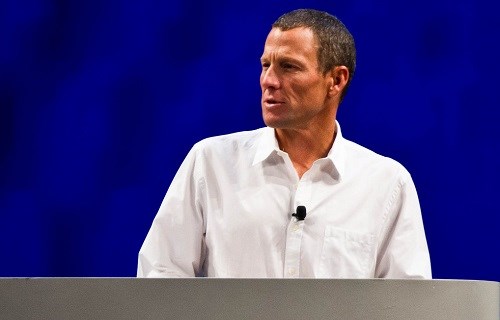Comment
The Battle of Forgiveness

Lance Armstrong. Photo: Tom Raftery/Flickr
29.01.2015
In a BBC interview, Lance Armstrong said that he would dope again. Not today, but if he were to start his career over again. It was impossible to win without doping when he was active. Should Lance Armstrong be forgiven?
According to Armstrong, the use of doping was necessary to win in the 1990’s and 2000’s. That is why he still thinks he is the rightful winner of the seven Tour de France titles of which he was stripped because of systematic doping.
This confession can only be interpreted in one way. He wants your forgiveness, understanding and sympathy.
Shortly, Lance Armstrong will meet in court against former sponsors and supporters. The interview with BBC is his way of seeking as much sympathy and understanding he can get. If people understand why Lance Armstrong used doping, he hopes to get a second chance even if he has a lost case in judiciary system.
Lance Armstrong hopes the people’s tribunal will treat him better. With the general public’s acceptance and forgiveness, he hopes he can get back on his bike or into other sports that do not care about what substances he used while riding the French roads.
Drunk driving and killing
The past years have been marked by many serious cases involving famous sports personalities outside the sports arena. Michael Phelps drove drunk and was banned from swimming for six months. Now, many hope that he will break his own Olympic gold record in Rio in 2016.
Oscar Pistorius was sentenced to five years in prison for the killing of his girlfriend. Not long after there were speculations about how soon he could return and about whether he will be able to compete at the 2022 Games in Tokyo. The IOC does not wish to have any opinion on the matter since he has done nothing wrong on the playing field(!).
English footballer Chad Evans has just been released from prison after serving half his sentence for rape. Many football clubs in England have welcomed Evans back, but have had cold feet. Not because he has been in jail for rape but because the pressure from the media gets too extreme and because people protest against immorality.
The rape victim is still moving from one unknown address to the next and with an alias because angry supporters are accusing her of ruining Evans’ career. In Norway, Lars Bohinen, former Premier League Player and manager at Norwegian club Sandefjord, has said that he would not have any trouble signing the convicted rapist. According to Bohinen, Evans has served his sentence.
What is significant in these cases is that they are all about men. Men make the mistakes. And men take the role as judges.
Is sport more willing to forgive than others? Are results on the playing field more important than taking into account their moral story outside sports? And – do men have another sense of justice than others?
The biggest sin… is doping
During the past years, the mildest sentences, but with the harshest condemnation, have been the ones handed out in doping cases.
Lance Armstrong is regarded persona non grata by the entire sports press, by experts and by all athletes who take an exception to doping.
The three athletes Justin Gatlin, Tyson Gay and Asafa Powell, who have dominated the short distances along with Usain Bolt, have been scapegoats for this class of athletes.
And let’s not forget the football player Luis Suarez, who bit his way out of everybody’s hearts during the World Cup last year. There is no mercy. They should be banned for life! Not because they have killed someone, not because they have been driving drunk. They have sinned against the ethics and moral of sport!
What can be forgiven?
This presents us with to two moral questions: Do we have two sorts of moral playing fields – one inside and one outside sports? Are we more eager to forgive crime committed outside sports than fouls committed in the sports arena?
When can you forgive? Who can be forgiven? Would a different gender balance among the judges have made a difference?
This comment first appeared in online sports site Sporten.com (in Norwegian) and is republished on www.playthegame.org with kind permission from the author.





